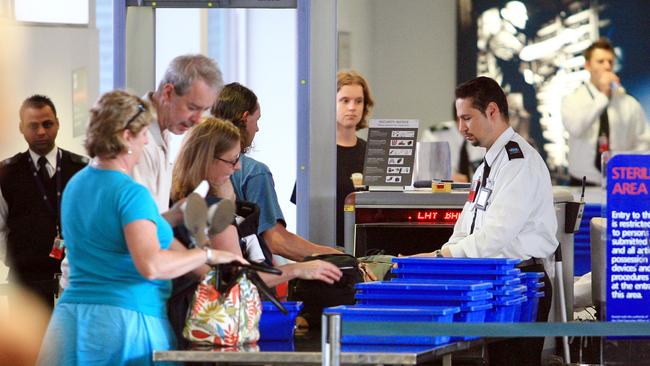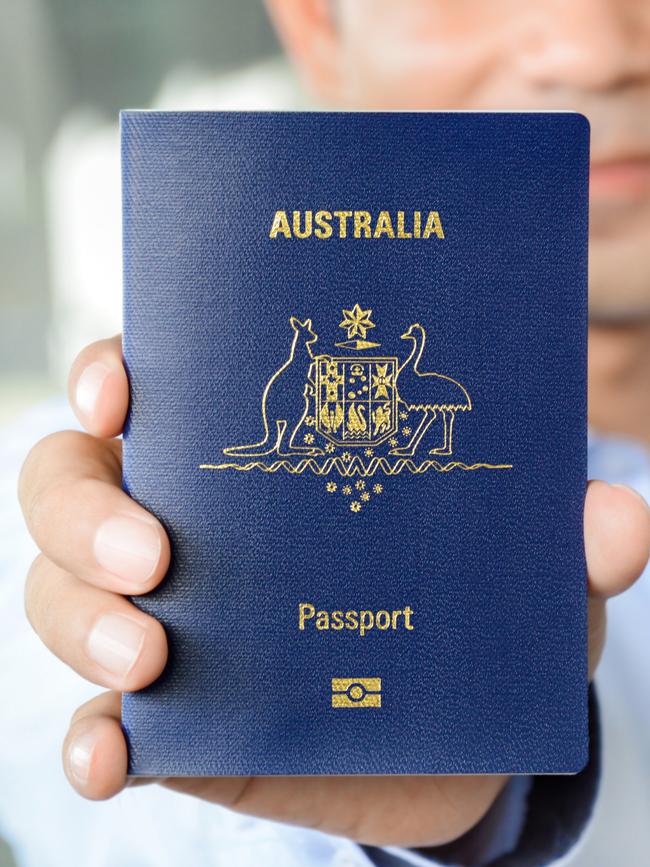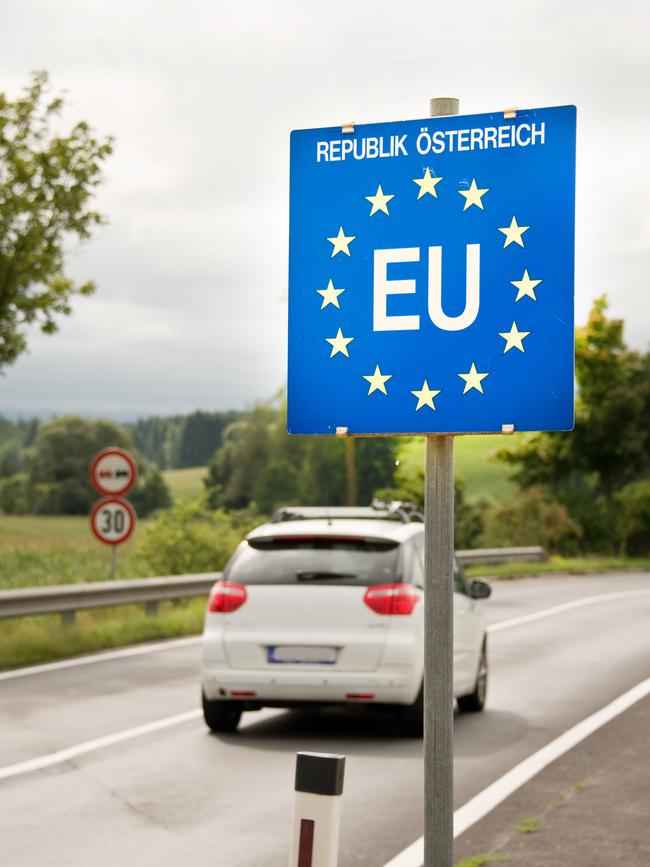Big changes coming to international travel in 2025 and 2026
Thinking of chasing summer? From visa changes to the latest luggage rules and a raft of new fines, here’s what you need to know before going overseas.

From visa changes to new ID requirements and a large number of freshly inked laws, major changes to international travel are coming in 2025 while others are already in place.
Here’s what you need to know before you head overseas.
HARSH NEW LAWS IN MANY COUNTRIES
Northern Hemisphere holiday destinations are cracking down on rowdy tourists.
See if your favourite spot is impacted below.
PORTUGAL
Tourist mecca Albufeira is about to introduce harsh new laws to curb hedonism after a spate of drunken nudity has angered locals.
The Albufeira city council has passed a number of steep fines set to come into force within weeks.
If you’re caught naked in public, you could be slapped with a whopping $3150 fine.
Peeing, having sex and even wearing a bikini when not at the pool or beach is also frowned upon with any of the three transgressions to set you back $2620.
In nearby Lisbon, you can be whacked $3565 for being noisy in a quiet zone.

TURKEY
You know how flight attendants are always telling you to stay seated and buckled in until the aircraft has come to a complete stop?
If you disobey in Turkey, you could receive an $104 fine.

SPAIN
In Ibiza you could be fined $629 for wearing a bikini off the beach, $1573 for public nudity, $2705 for boozing in the street and $4734 for noise or vandalism.
Additionally, party boats are banned and there’s a six per day beverage cap on all inclusive drink deals.
Palma de Mallorca is slugging people $5451 for anti-social behaviour and $524 for wearing your beach clobber into the city.
They also ban party boats and enforce the six drink limit.
In the Canary Islands there is an $5294 fine for street boozing, $5242 for smoking on the beach, $5277 for bringing your barbecue, umbrella or tent on the beach.
You must also carry a photo ID at all times.
In Barcelona you will be fined $524 for going on a pub crawl or wearing swimmers in the city, $5240 for littering and $1069 for drinking in the street.
Costa del Sol now hands out $1363 fines for wearing swimmers or going topless or naked off the beach or wearing rude hen or stag party costumes, $893 for carelessly crossing the road, $2516 for littering and $524 for drinking in a group on the street.
PRAGUE
No pub crawls from 10pm to 6am.
A ban on rude fancy dress costumes.
$880 fine for public drunkenness or drinking in the street

GREECE
There is an $1594 for wearing high heels on an archaeological site, $524 for being topless in public, $880 for smoking indoors and $1617 for taking pebbles from the beach.
AMSTERDAM
This city has launched a campaign directed at badly behaved British lads, but the fines stand for everyone.
$252 for littering, urinating, being drunk or rowdy in public.
$1758 for a group drunken debauchery
CROATIA
In Split you could be fined $524 for jumping in a fountain, public urination, vomiting in public and public nudity and $262 for taking a nap in public.
In Hvar you will attract penalties of $1080 for wearing swimwear outside the beach, $900 for going topless, $158 for public intoxication and $119 for swiping noble pen shells from the beach.

ITALY
Don’t let all those nude Italian artworks confuse you, if you go topless off beach in Sorrento you will be fined $944.
Don’t sit on the Spanish steps in Rome unless you want an $705 fine or stand in a fountain to be fined $793.
Don’t hike in your thongs unless you want an $4195 fine in Cinque Terre.
FRANCE
In France fines include $88 for taking an oversized bag on a train, $2664 for climbing on monuments and $26,640 for being seen naked in a hotel room.
EUROPEAN UNION CARRY-ON LUGGAGE
Rules restricting the amount of liquid you can have in your carry-on luggage have been reinstated.
Liquids — including gels and creams — must be in containers of 100ml and in a clear plastic bag placed in a separate tray before passing through airport security.

THE EUROPEAN ENTRY/EXIT SYSTEM
The new European Entry/Exit System (EES) is expected to come into effect in October 2025, although a specific start date is yet to be announced.
The EES will affect all non-EU nationals, including Australians, travelling in or out of the Schengen area — made up of 29 European countries that share common border rules.
The EES is a digital border system that will create a digital record of all non-EU visitors using their biometric data.
So, the first time you visit the EU after the EES is implemented — and you plan to visit any country in the Schengen area — you will be fingerprinted and photographed.
If you return within three years of your digital record being created, you can enter and exit using either your fingerprint or photograph at the border.

SCHENGEN AREA ENTRY/EXIT RULES
Australians can travel visa-free in the Schengen area for up to 90 days in a 180-day period as long as the reason for travel is accepted.
You can find the list of accepted reasons for travel here.
You must have a passport that is valid for at least 3 months after the date you plan to leave.
It can take up to six weeks to renew a passport so make sure you check before you leave.
Your passport must be stamped in the first country you visit so make sure the stamp is clear or you could be fined or detained.
In some countries you may be required to register your stay within 3 days of arrival.
Learn more about entry and exit requirements for each country here.
Advice on temporary border controls can be found on the European Commission website.
Non-Schengen countries have their own border rules. You can check with the high commission, embassy or consulate of those countries here.


WHEN TO GET A VISA
You’ll need to apply for a visa if you plan to stay in the Schengen area for more than 90 days or your reason for travel changes, making you ineligible for visa-free travel.
Visa applications must be made outside the country you plan to visit.
Apply for a visa at the embassy, high commission or consulate of the country you plan to stay the longest or the country you visit first if the time you plan to stay in each country is equal.
Find a list of foreign embassies and consulates in Australia here.
Visa rules apply if you are travelling on an Australian passport.
Dual nationals travelling on a non-Australian passport need to check the rules for that nationality.

CHANGES COMING IN 2026
The European Travel Information and Authorisation System (ETIAS) is an electronic security system expected to start in the last quarter of 2026.
When you visit one of the European countries that have signed up for ETIAS, you will undergo a security check before you can enter.
Find out which countries are taking part here.
More Coverage
Originally published as Big changes coming to international travel in 2025 and 2026



